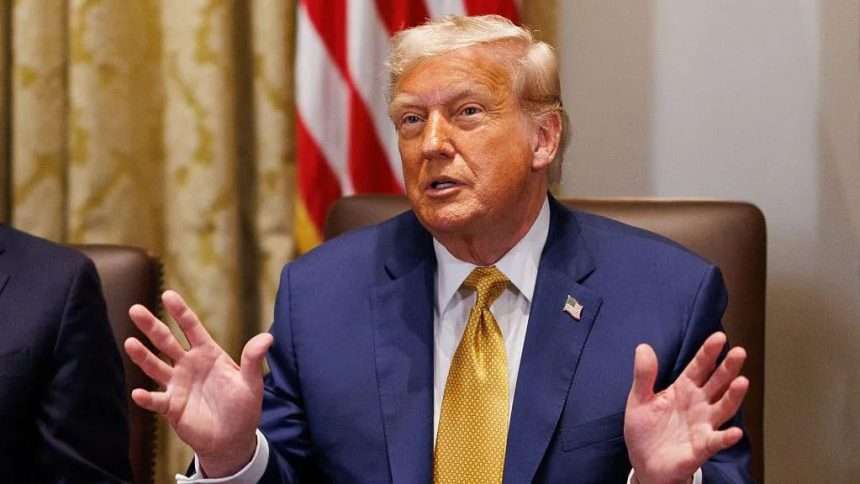Tensions are mounting in Abuja as Nigeria’s ruling elite scramble into high gear following the stark warning from U.S. President Donald Trump that American troops could be deployed in Nigeria if the government fails to halt the killing of Christians by Islamist-fundamentalist groups.
On Monday, the country’s top security team convened an emergency meeting to assess the fallout.
As the clock is ticking, the statement from President Trump last weekend set off alarm bells in Nigeria’s corridors of power.
According to the US President, if the Nigerian government does not act to stop what he described as “the killing of Christians… in very large numbers”, the U.S.A. may “stop all aid and assistance” and potentially – quote “go into that now-disgraced country… ‘guns-a-blazing’.”
In response, the Federal government has moved quickly, with the country’s National Security Adviser, Nuhu Ribadu, convening a high-level meeting in Abuja attended by the Service Chiefs and heads of the key security and intelligence agencies.
The Agenda was clear: review intelligence on extremist violence, evaluate Nigeria’s response capacity, and co-ordinate messaging amid growing diplomatic pressure.
Monday’s Emergency National Security Meeting, further assessed U.S. threat and reviewed counter-terror strategy.
MUST READ: Trump Genocide Claims: NIDCOM Calls for Projection of Nigeria’s True Image
In the aftermath of that meeting, the Chief of Defence Staff, Olufemi Oluyede, addressed reporters, affirmed Nigeria would welcome external support – but only if it respected the country’s sovereignty.
However, the government stopped short of accepting a foreign military intervention led by the U.S.
President Tinubu’s spokesman, Daniel Bwala, who described Trump’s threat as a negotiating posture, stressed that any assistance must “recognise Nigeria’s territorial integrity.”
From the Media briefing after Monday’s meeting, three key lines emerged:
One: Public Messaging – The government insists that there is no sanctioned persecution of Christians. The statement emphasised that violence affects all faiths and is a national security—not religious—challenge.
Two. Security Acceleration – The new Service Chiefs pledged renewed operations, more intelligence sharing, and closer coordination among agencies.
And three Diplomatic Engagement – the government signalled its willingness to accept support from the U.S. or others — but only under terms that preserve Nigerian sovereignty and control of operations.
Analysts have described the U.S. threat as a “wake-up call” for Nigeria to up its game.
In short: the ruling elite are busily re-tooling domestic security, trying to control the narrative, and reposition Nigeria on the global stage — all at once.
(Editor: Ken Eseni)








